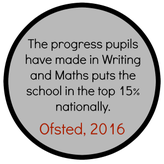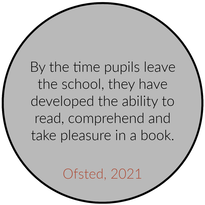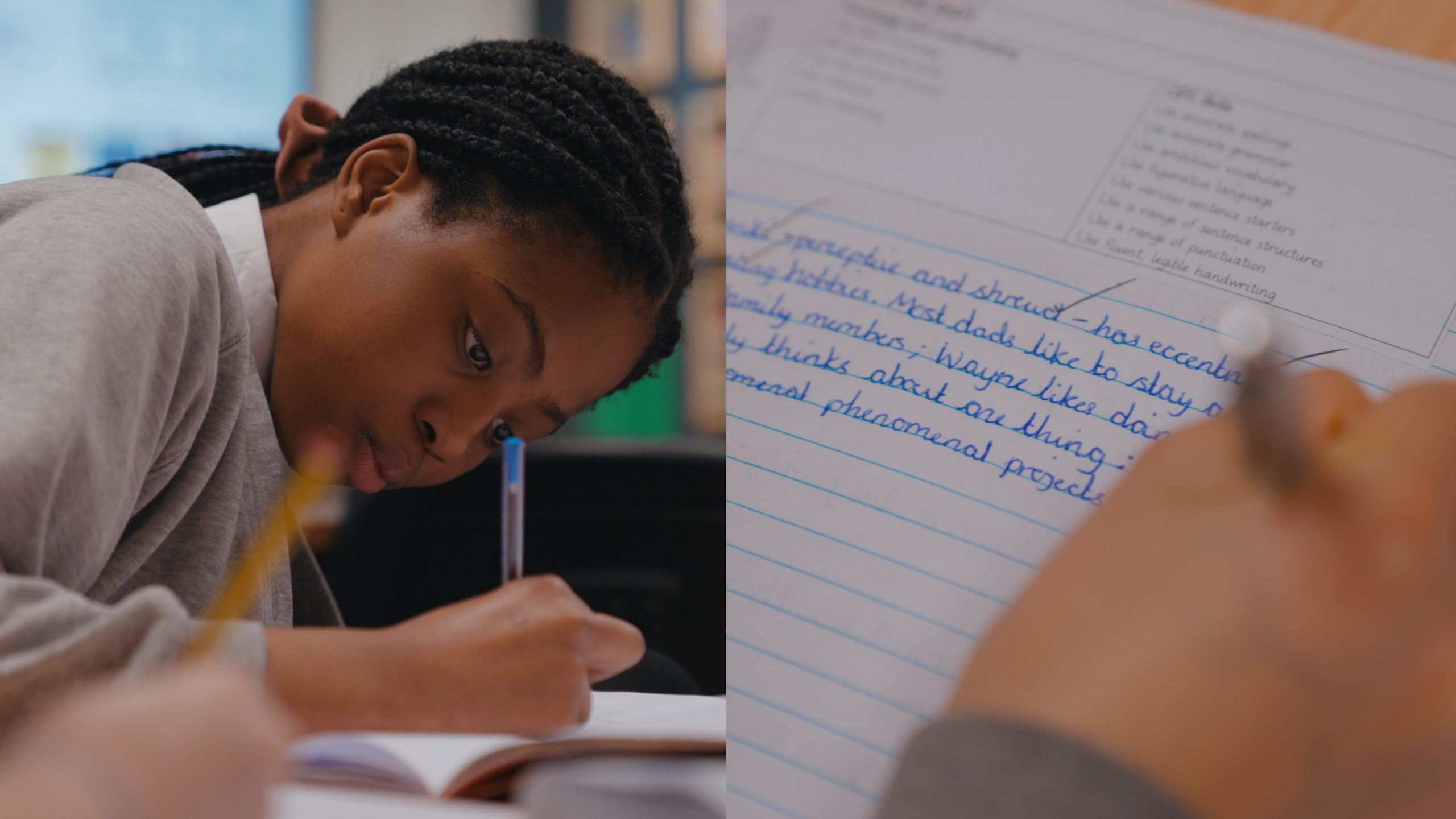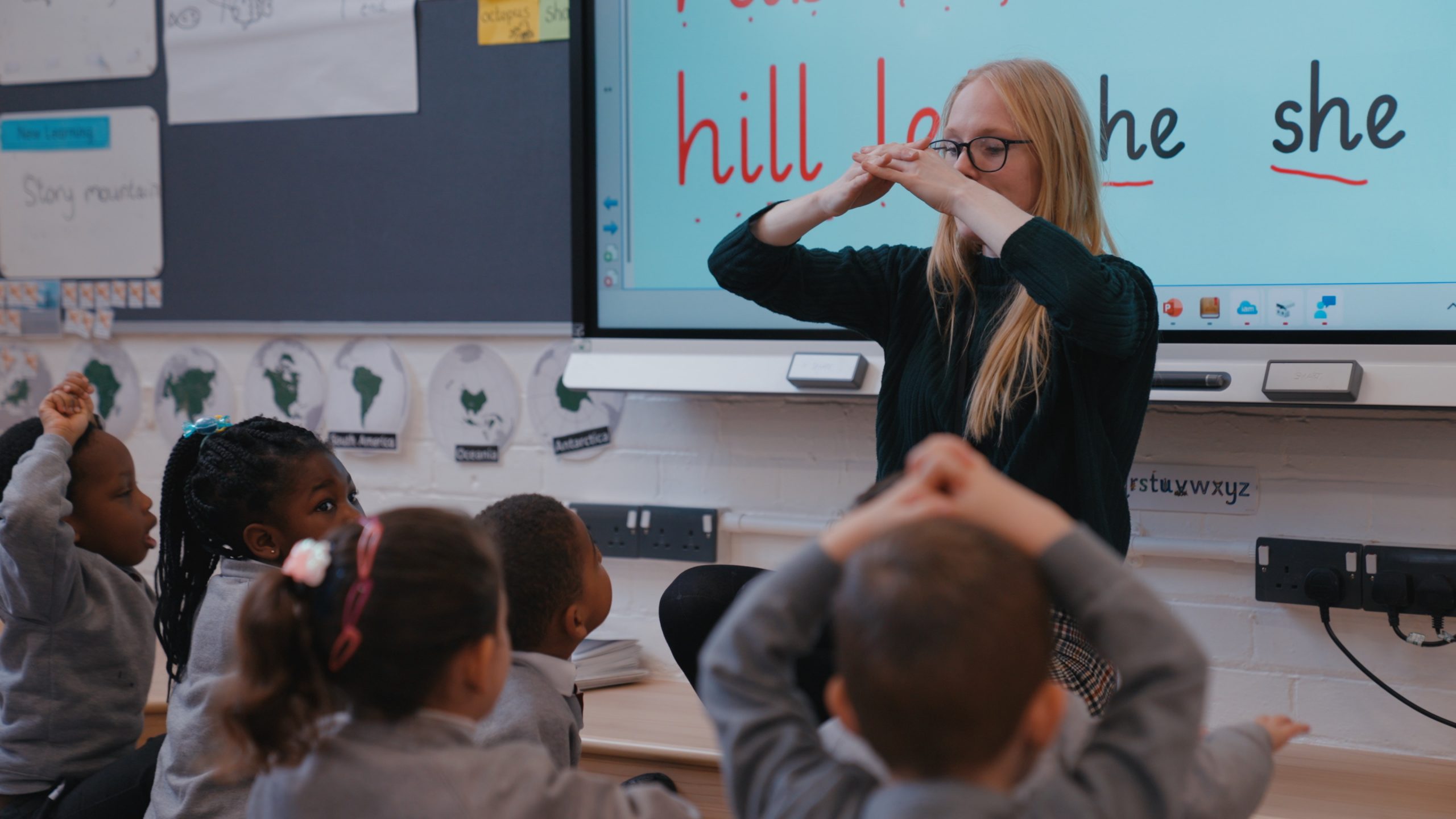Due to the unique demographic of Bantock Primary School, we aim to promote high standards of English, by equipping pupils with strong guidance to utilise spoken and written language effectively. We will develop their love of literature through widespread reading for pleasure. Through our bespoke approach to pedagogy, pupils will acquire a wide range of vocabulary, a secure understanding of grammar and knowledge of the linguistic conventions for reading, writing and spoken language – from their unique starting points. Pupils will be taught to write clearly, accurately and coherently , adapting their language and style for a range of contexts, purposes and audiences and will use discussion in order to learn, elaborate and explain clearly their understanding and ideas. Fundamentally, pupils be competent in the arts of speaking and listening and will be taught to speak with a good level of spoken English.
SHINE in English

Succeed
We want all children to confidently utilise the essential components of English and develop these aspects to a high standard, constantly striving towards creating a cohesive community. We want to evoke oral precision, reading pleasure and writing passion and embed these attributes across the curriculum.
Happy
We will provide a motivating learning environment to ensure we promote a culture of happiness and enjoyment across all aspects of English, where learning challenges are language rich. Our bespoke English curriculum brings opportunities to explore, practice, apply and analyse quality outcomes whilst being submerged in ambitious terminology and sentence structures. Pupils’ attitudes are praised and their contributions as individuals are valued.
Inspire
We will inspire all children through our multi-sensory approach to providing a stimulating English curriculum, which inspires life-long knowledge, skills and understanding. Pupils are motivated by significant individuals and quality written outcomes. They have a strong desire to enhance their cultural capital in English where opportunities are provided both within school and as part of our extra- curricular offer.
Nurture
We will build strong foundations with parents and pupils, based on honesty and collaboration. We scaffold and nurture quality – first learning opportunities, whilst celebrating and supporting diversity, in order to foster independent learning and application, across the English curriculum.
Educate
We will treat all pupils as individuals, carefully monitoring their progress from their unique starting points and plan bespoke next steps to guide them on their English journey. Using visual literacy as a stimulus and effective modelling as a scaffold, we will explicitly teach the English knowledge, skills and understanding that children need, in order to develop independence in the mechanics of English and then be successful in later life.
We will create opportunities to allow your child to SHINE.
Downloads
Year 1 Curriculum.pdf
Year 2 Curriculum.pdf
Year 3 Curriculum.pdf
Year 4 Curriculum.pdf
Year 5 Curriculum.pdf
Year 6 Curriculum.pdf
English National Curriculum.pdf
Appendix 1: Spelling.pdf
Appendix 2: Vocabulary, Grammar & Punctuation
Literacy Long Term Overview
NLT Guide for Reading at Home
Phonics Check Parent Booklet
Oracy
Oracy plays a rudimental role in enhancing curriculum provision. As staff model Standard English in the classroom, they promote and build in opportunities for active speaking and listening in the curriculum. Speaking and listening form the foundations of literacy development and play an essential role in enabling children to become fluent in the dynamics of English. We provide chances for our pupils to talk to others, talk with others, talk about talk and talk within role play and drama. Pupils are equipped with the tools required to enhance their oracy in a language rich environment. Thus enabling them to develop proficiency in English.
Phonics
Phonics provides the fundamental foundation of learning to aid the transition into fluent reading and writing. A structured programme of Phonics extends across the whole school. Consistent delivery of phonics teaching ensures that pupils engage in high quality systematic phonics, that supports their ability to blend for reading and segment for spelling. Pupils begin phonics lessons on entry to Early Years Foundation Stage. We use Success For All phonics programme to support the teaching of synthetic phonics across Reception to Year 6 – according the child’s ARE. This is taught twice daily across EYFS and KS1. Pupils are taught to enunciate phonemes correctly and are supported with the correct grapheme formation, to segment and blend confidently as well as to read and write words, phrases and sentences. Pupils are provided with numerous opportunities to demonstrate their knowledge both collaboratively and independently.
Reading is at the heart of our curriculum. It is our desire that our children not only learn to read but read to learn. Pupils read widely for pleasure, for information and to expand and enhance their knowledge and understanding across the whole curriculum. They are immersed in a Reading curriculum that is rich in vocabulary, knowledge and understanding and enables them to become independent learners. Teacher explicitly model reading skills and use high quality texts for children to deconstruct and analyse. Through captivating imaginations, pupils are motivated to apply progressively advanced skills that are transferable to the digital and global world.
For pupils on Phonics, both in class and to support home reading, pupils are provided with fully decodable texts to read, that directly link to the grapheme phoneme correspondences (GPCs) taught. Pupils are then provided with opportunities to engage with further stories, rhymes and extracts to gain an understanding of word meaning and text comprehension. As pupils develop fluency, this is supplemented with high quality fiction and non-fiction banded books. Each class also has an additional library of age- appropriate books (of varying genres) that the pupils can read for pleasure.



For pupils at Bantock who have finished the phonics programme, Reading incorporates whole class teaching of an age-related text, where pupils are supported to read with fluency and accuracy, explore language, retrieve key information and infer ideas. It also features mixed comprehension practice. As well as that, there are opportunities to encompass reading for pleasure, complete independent reading tasks. Texts chosen are grouped according to the pupils’ developing needs. Pupils also have opportunities to read across the curriculum and complete comprehension activities – across a variety of foundation subjects. At Bantock, we acknowledge the importance of sharing stories with children of all ages. Throughout the week, class teachers create an ‘Morning Reading Experience’ for their class. This consists of the teacher whole-heartedly reading the class reader, in order to model musicality, speed, rhythm and punctuation in the text. Texts are selected using age- appropriate text lists for each year group.
Pupils in all year groups visit our school library at least once every two weeks. During this time, they will explore a range of authors, genres of stories and non-fiction texts, under the guidance of a trained member of staff. In addition to their home reading book, pupils can select an appropriately pitched library book to read also.
You can access the Parent Portal for FFT Success For All Phonics Here. This includes helpful videos as well as the Shared Readers Library that contains the books children will read in school at their phonics level.
Here are useful videos to show how phonics is taught in school and these can be used to support pupils at home. You can also find videos for each grapheme set on FFT Parent Portal here.
Spelling
Spelling sessions are taught daily in each year group. As a natural progression from Phonics, Support for Spelling is used in Years 2 – 6. Pupils are taught spelling strategies, conventions, patterns and rules. There are also integral opportunities to promote learning of spellings including statutory words, common exception words and personal spellings. Pupils receive new spellings to practise at home and are tested weekly.
Writing
Pupils are inspired by high-quality literature, a range of visual stimuli and the use of colourful semantics which makes pupils engage with and enjoy writing. Writing in our school is well-organised and structured. Pupils write for a variety of purpose and audiences and become confident in demonstrating a given genre. Academic vocabulary is explicitly taught through deconstructing and evaluating a quality age-related text. Then, in skills sessions, pupils are discreetly taught the features of the specified genres, in order to later apply them to their own compositions, in the desired context.
Pupils collect initial ideas from a given stimulus and plan and draft their written outcomes (both collaboratively and independently). Throughout the writing process, pupils edit and redraft their work, responding to feedback from teachers and peers. Pupils are provided with multiple opportunities to reflect on their completed outcomes and evaluate the effectiveness of their compositions.
Targets
Each child has age-related learning objectives for Reading and Writing. Both staff and pupils are able to indicate areas achieved by the pupil and next step targets towards each objective. Staff use these in lesson as a measure of achievement and to inform teacher assessment judgments.
Impact
Our English curriculum facilitates sequential learning and long-term progression of knowledge, skills and understanding. Our pedagogy and teaching and learning methods provide regular opportunities to embed key knowledge through quality-first questions, engagement strategies, discussion and modelling. Embracing synthetic phonics, reading and academic language are integral parts of our core curriculum offer. They enable children to have a solid foundation upon which to build their English understanding and enjoyment. Discreet teaching of key concepts and skills, equips children with the key concepts and understanding to confidently apply essential academic knowledge in a range of independent situations – demonstrating, at their individual academic ability, what they have internalised.